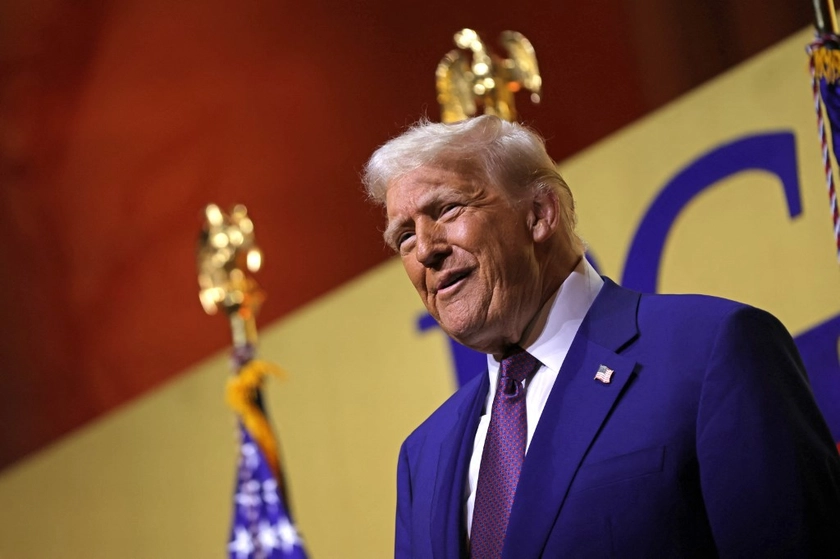Since the full-scale Russian invasion of Ukraine in February 2022, the United States and its allies have played a crucial role in backing Ukraine militarily, financially, and diplomatically. However, as the war enters its third year, a dramatic shift in U.S. policy suggests that Ukraine may be left stranded.
From encouraging Ukraine to fight in the early days to now pressing for negotiations with Russia—while demanding compensation in the form of rare earth metals—the United States’ role in the conflict is being increasingly scrutinized. Is Washington “selling Ukraine down the river”? And if so, how does this reflect on the global balance of power?
JOIN US ON TELEGRAM
Follow our coverage of the war on the @Kyivpost_official.
The US Push for War in 2022
In the first months of the war, Ukraine surprised the world by repelling Russian forces from Kyiv and later reclaiming large swathes of territory. The Western world rallied behind Ukraine, offering military aid, economic support, and intelligence. President Biden vowed that the US would stand by Ukraine “for as long as it takes.”
Some Western leaders believed that Ukraine could outright defeat Russia if properly armed.
Fast forward to 2024, and the situation has dramatically changed. Ukraine, once riding on battlefield momentum, is now battling against a more prepared Russian military in a virtual stalemate situation. The flow of U.S. aid has slowed, and Ukraine is running out of resources and manpower.

UK-Funded Poll Shows 63% of Ukrainians Approve of Zelensky
How the US Has Left Ukraine in a Weaker Position
As military support dwindled in 2023-2024, Ukraine found itself unable to launch a successful counteroffensive. Russia, learning from its early mistakes, fortified its positions and built one of the strongest defensive lines in modern warfare. Meanwhile, political shifts in Washington, particularly with the rise of Donald Trump as the leading Republican candidate, further complicated matters.
Now, with Trump openly stating that he would end the war “within 24 hours” by forcing Ukraine to negotiate with Russia, Ukraine is facing the very outcome it tried to avoid in 2022—but under much worse conditions.
Some key consequences of US policy shifts:
- Aid delays and restrictions weakened Ukraine’s war efforts, allowing Russia to regain the upper hand.
- Western attention has shifted elsewhere, with conflicts in the Middle East and tensions in Asia taking priority.
- Trump’s potential return to the White House signals an abrupt U.S. disengagement, with Ukraine left to negotiate from a position of weakness.
Trump’s Deal: Is Ukraine Being Sold to Russia?
Trump’s approach to Ukraine is simple: stop fighting, negotiate, and make a deal. But what is particularly alarming is the economic angle emerging in recent reports.
The U.S. has allegedly demanded Ukraine “pay back” the military aid it received—to the tune of $500 billion—in the form of its vast reserves of rare earth metals and critical minerals. These minerals are crucial for global industries, including defense, technology, and green energy.
This raises disturbing questions:
If Ukraine is being pressured to surrender territory, why should it also pay for the war effort?
The US is treating Ukraine as a colony rather than a sovereign partner.
Is this a new form of economic warfare, where a weaker nation must trade its resources for “protection”?
Such demands resemble colonial-era tactics, where powerful nations exploit smaller ones for strategic gain. If true, this would fundamentally change the moral justification for U.S. involvement in Ukraine, shifting it from “defending democracy” to economic opportunism.
A Historic Injustice?
At its core, Ukraine’s struggle has been one of sovereignty and survival. The Ukrainian people have fought bravely, believing they were backed by a coalition that would not abandon them. But now, the reality is setting in: great powers operate on self-interest, not moral duty.
If Ukraine is forced into an unfavorable settlement without proper security guarantees, the consequences will be dire:
Ukraine may lose significant territory, with Russia solidifying its gains.
The Ukrainian economy, already devastated, will be further weakened by the extraction of its natural wealth.
The credibility of the West will suffer—what message does this send to Taiwan or other allies relying on US security commitments?
Final Thoughts: The Future of Ukraine
The war in Ukraine has revealed uncomfortable truths about international politics. While the U.S. initially encouraged Ukraine to resist, its long-term commitment is now in question. If Washington forces Ukraine into a settlement that benefits Russia while demanding economic repayment, then Ukraine has indeed been “sold down the river.”
For Ukraine, the best outcome would be to negotiate from a position of strength rather than desperation. However, this would require continued Western military support, which now seems increasingly uncertain.
The views expressed in this opinion article are the author’s and not necessarily those of Kyiv Post.
You can also highlight the text and press Ctrl + Enter











